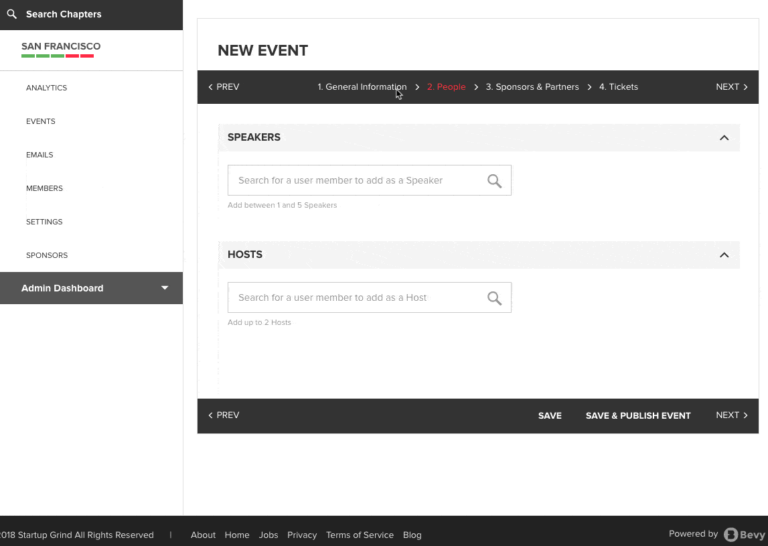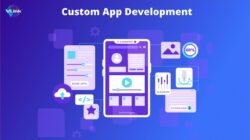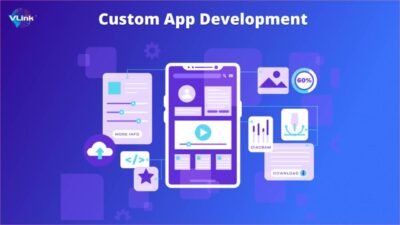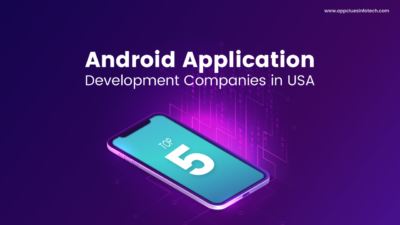Event app for conferences is revolutionizing the way attendees connect, interact, and engage during events. With a well-designed app, participants can access schedules, network with peers, and receive real-time updates, all at their fingertips. This innovation not only streamlines the event experience but also fosters a sense of community among attendees, making it easier for them to navigate the busy environment of conferences.
As we dive deeper into the impact of event apps, we’ll explore their key features, the benefits they bring to both organizers and participants, and how they can significantly enhance networking opportunities. From personalized agendas to interactive maps, these apps are becoming indispensable tools for modern conferences.
Technology has been a pivotal part of human evolution, shaping societies, cultures, and economies. From the earliest tools crafted by our ancestors to the artificial intelligence that defines our current age, the journey of technology is fascinating and multifaceted.
Early Innovations: The Dawn of Creation
The timeline of technology dates back to the Stone Age when early humans created basic tools from stones and bones. These primitive inventions marked the first step in human innovation. As we progressed to the Bronze and Iron Ages, metallurgy transformed the way humans interacted with their environment. The development of the wheel around 3500 BC also revolutionized transportation and trade, facilitating the movement of goods and ideas.
The Age of Agriculture: A Shift in Lifestyle
With the advent of agriculture around 10,000 BC, technology took another leap forward. The ability to cultivate crops and domesticate animals led to the establishment of permanent settlements. This transition from a nomadic lifestyle to an agrarian society spurred population growth and allowed for the development of complex societies. The plow, irrigation systems, and crop rotation techniques were among the key innovations that emerged during this time, fundamentally altering human existence.
The Classical Period: Philosophies and Mechanical Wonders
As civilizations flourished, particularly in regions such as Greece and Rome, technology began to intertwine with philosophy and science. The Greeks made significant contributions to mathematics, geometry, and engineering. Figures like Archimedes and Euclid laid the groundwork for understanding the physical world. The Romans, on the other hand, excelled in engineering, constructing aqueducts, roads, and monumental structures that showcased their advanced understanding of materials and construction techniques.
The Middle Ages: Innovation in Darkness
Contrary to the perception of the Middle Ages as a dark period, this era was marked by significant technological advancements. The invention of the mechanical clock, the compass, and advancements in shipbuilding are notable examples. The agricultural revolution of the 11th century, characterized by the three-field system and the heavy plow, led to increased productivity, setting the stage for the economic growth of the later Middle Ages.
The Renaissance: A Reawakening of Knowledge
The Renaissance, spanning the 14th to the 17th century, heralded a revival of classical knowledge and a surge in innovation. The invention of the printing press by Johannes Gutenberg in the 15th century revolutionized the distribution of information, making literature and knowledge accessible to the masses. This era also saw advancements in art, science, and exploration, with figures like Leonardo da Vinci and Galileo Galilei pushing the boundaries of human understanding.
The Industrial Revolution: The Birth of Modern Technology
The 18th and 19th centuries were defined by the Industrial Revolution, a period that transformed economies from agrarian to industrial. Key inventions such as the steam engine, spinning jenny, and power loom mechanized processes and increased production efficiency. This era not only redefined labor but also led to urbanization, changing the social fabric of society. Factories became the new hubs of activity, and with them, the rise of a working class emerged.
The 20th Century: A Technological Explosion
The 20th century brought about unprecedented technological advancements. The invention of the telephone, radio, and television revolutionized communication, shrinking the world and bringing people closer together. The space race led to remarkable achievements such as man landing on the moon in 1969. The introduction of computers and the internet in the latter half of the century transformed how we connect, work, and live.
The digital revolution has paved the way for the information age, characterized by instant communication and access to vast amounts of information.
The 21st Century: Artificial Intelligence and Beyond
As we delve into the 21st century, technology continues to evolve at an exponential rate. Artificial Intelligence (AI) and machine learning are reshaping industries, from healthcare to finance. Innovations such as smart homes, wearable technology, and autonomous vehicles are changing our daily lives, raising questions about privacy, ethics, and the future of work. The rise of social media has transformed how we interact, share information, and perceive the world around us.
The Future: What Lies Ahead?
Looking ahead, the trajectory of technology suggests a future filled with possibilities. Emerging technologies like quantum computing and biotechnology hold the potential to solve complex problems and improve quality of life. However, along with these advancements come challenges, including concerns about cybersecurity, job displacement due to automation, and the ethical implications of AI decisions. As we navigate this uncharted territory, it is crucial to strike a balance between innovation and responsibility.
Conclusion: A Continuous Journey
The journey of technology is a testament to human ingenuity and the relentless pursuit of progress. Each era has contributed to the tapestry of innovation, shaping our present and influencing our future. As we stand on the brink of new discoveries, it is essential to remember the lessons of the past while embracing the opportunities that lie ahead. The future of technology is not just about the tools we create but also about the impact they have on humanity.
FAQ Explained
What features should an event app include?
An event app should include features like schedules, speaker information, personalized agendas, networking tools, live updates, and interactive maps to enhance attendee experience.
How can event apps improve networking?
Event apps can improve networking by providing features that allow attendees to connect, message each other, and schedule meetings, facilitating easier communication among participants.
Are event apps user-friendly for all age groups?
Yes, most event apps are designed with user-friendly interfaces that cater to various age groups, ensuring easy navigation and accessibility.
Can event apps be customized for specific events?
Absolutely! Many event apps offer customization options to reflect the branding and specific needs of the event, ensuring a tailored experience for attendees.
What is the cost of implementing an event app?
The cost varies based on features, customization, and providers, but many options are available to fit different budgets, making it accessible for various organizations.












